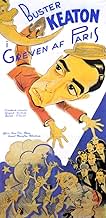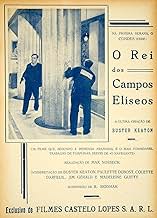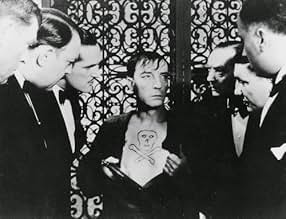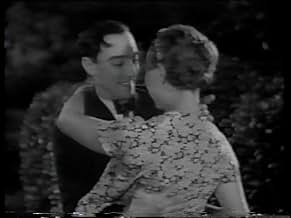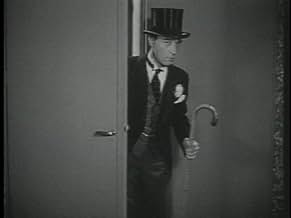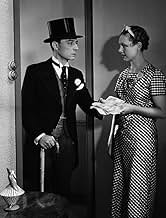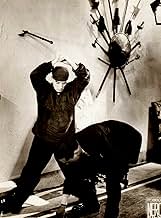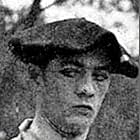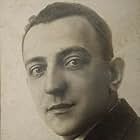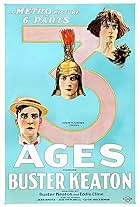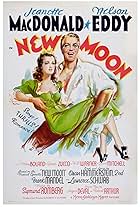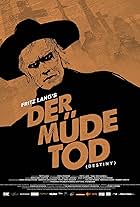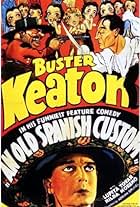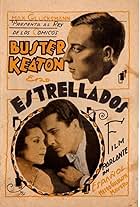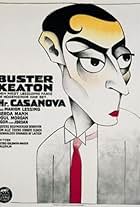In Paris, a stage-struck would-be actor is mistaken for an escaped convict.In Paris, a stage-struck would-be actor is mistaken for an escaped convict.In Paris, a stage-struck would-be actor is mistaken for an escaped convict.
Lucien Callamand
- Le directeur
- (as Callamand)
Jacques Dumesnil
- Un gangster
- (as Dumesnil)
Pierre Piérade
- Un gangster
- (as Piérade)
Gaston Dupray
- Le régisseur
- (as Dupray)
Raymond Blot
- Un gangster
- (as Blot)
Pedro Elviro
- Un gangster
- (as Pitouto)
Paul Clerget
- Le directeur du théâtre
- (uncredited)
Franck Maurice
- Un gangster
- (uncredited)
- Director
- Writers
- All cast & crew
- Production, box office & more at IMDbPro
Storyline
Did you know
- TriviaThis is a rare movie in which Buster Keaton actually smiles at the end.
- GoofsBuster Keaton did not speak French, so his dialog in this Paris-made talkie was dubbed by an actor whose vocal pitch was an incongruous tenor. In one scene with Colette Darfeuil (who played Simone) the dubbing engineer missed a line, and we can plainly hear Buster say "Go get me a drink" in English, in his distinctive gravelly voice.
- ConnectionsFeatured in Buster Keaton: A Hard Act to Follow (1987)
Featured review
This is good movie. I found a fairly clear copy with English subtitles from A-1 video, image and sound properly in-sync, but image tightly cropped, and it can be seen from reading the subs that the movie has none of the awful joke-dialogue that plague the MGM comedies. The story is well put together and, unusually, I can find nothing I would edit down or cut out. It is not a high-budget affair, but the script does not require it.
The notion that a U.S. release of this film might have revived Buster Keaton's career doesn't make any sense: the general public still loved Keaton in the early 1930s, and his worst movies were very successful; the only way of "reviving" his career would have been for a major studio to hand over full production of movie-making to Buster, and I don't see how this film or any other non-Buster directed movie would have accomplished that. However, if the idea is that "Le Roi " brought Keaton back to his old self, well, that's debatable, but he does not seem to be fighting for his comic life, either.
Of course, under Keaton's direction, the photography might have been pellucid instead of so much shadowy-gray, and the cinematography probably would have focused more clearly on the gag and story elements. If Buster had been completely in control, no doubt he would have found an even higher level of wit or irony in the story, and greater comedy in the details with probably a few innovative stunts as well; but overall "Le Roi " remains a successful, if lesser Keaton vehicle. It is a particularly surprising and moving accomplishment to have taken place during the most disastrous time of his life, a time of suffering that would have killed anyone with less inner strength and resilience. This is a movie that deserves restoration and perhaps dubbing (so we can always watch the all-important physical action instead of reading).
The notion that a U.S. release of this film might have revived Buster Keaton's career doesn't make any sense: the general public still loved Keaton in the early 1930s, and his worst movies were very successful; the only way of "reviving" his career would have been for a major studio to hand over full production of movie-making to Buster, and I don't see how this film or any other non-Buster directed movie would have accomplished that. However, if the idea is that "Le Roi " brought Keaton back to his old self, well, that's debatable, but he does not seem to be fighting for his comic life, either.
Of course, under Keaton's direction, the photography might have been pellucid instead of so much shadowy-gray, and the cinematography probably would have focused more clearly on the gag and story elements. If Buster had been completely in control, no doubt he would have found an even higher level of wit or irony in the story, and greater comedy in the details with probably a few innovative stunts as well; but overall "Le Roi " remains a successful, if lesser Keaton vehicle. It is a particularly surprising and moving accomplishment to have taken place during the most disastrous time of his life, a time of suffering that would have killed anyone with less inner strength and resilience. This is a movie that deserves restoration and perhaps dubbing (so we can always watch the all-important physical action instead of reading).
Details
- Release date
- Country of origin
- Language
- Also known as
- The King of the Champs Elysees
- Filming locations
- Production company
- See more company credits at IMDbPro
- Runtime1 hour 10 minutes
- Color
- Aspect ratio
- 1.37 : 1
Contribute to this page
Suggest an edit or add missing content

Top Gap
By what name was Le roi des Champs-Élysées (1934) officially released in Canada in English?
Answer
